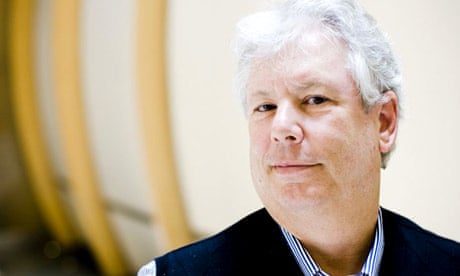A "nudge unit" set up by David Cameron in the Cabinet Office is working on how to use behavioural economics and market signals to persuade citizens to behave in a more socially integrated way.
The unit, formally known as the Behavioural Insight Team, is being run by David Halpern, a former adviser in Tony Blair's strategy unit, and is taking advice from Richard Thaler, the Chicago professor generally recognised as popularising "nudge" theory – the idea that governments can design environments that make it easier for people to choose what is best for themselves and society.
Thaler was in London for three days this week advising ministers, and in a speech urged the government to adopt longer term horizons. The deputy prime minister, Nick Clegg, said he believed the unit could change the way citizens think.
It is reporting to a prestigious board including Jeremy Heywood, the prime minister's permanent secretary, Steve Hilton, the prime minister's strategic adviser, Sir Gus O'Donnell, the cabinet secretary, and Robert Devereux, permanent secretary at the Department of Transport and head of the civil service policy profession. The unit has a two-year life, and its work will be reviewed after a year.
Behavioural work was undertaken by Tony Blair; under Gordon Brown the emphasis shifted to changes in the law and regulations. The aim of the unit, strongly supported by George Osborne, is to explore ways of encouraging citizens to behave in social ways relying on market incentives, as opposed to regulations. The initial work of the unit will be focused on areas such as public health issues such as obesity, alcohol intake or organ donation.
Halpern, author of the highly praised Hidden Wealth of Nations, has argued that a society of trustworthy citizens is a platform for economic growth and individual wellbeing.
Thaler has focused on how to nurture an individual's better instincts, or how to use nudge methods to persuade people, for instance, to save for retirement or hold back on excessive consumption.
In his speech, Clegg warned of citizens becoming short-termist, one of the traits nudge theory seeks to resist.
He said: "The question is whether our capacity to balance the immediate with the long-term is keeping pace with the expansion of choice.
"In real life, people eat doughnuts, decide not to go for a run, and put off making payments into their pension fund. The economists say this means we are engaged in an 'irrational discounting of time'. The rest of us describe it as being human."
He said: "The challenge is to find ways to encourage people to act in their own and in society's long-term interest, while respecting individual freedom."



